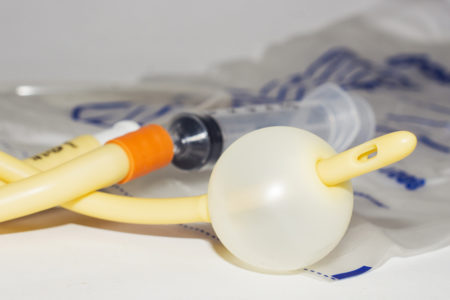The most important difference between Alzheimer’s and dementia is that Alzheimer’s is a disease, while dementia is a set of symptoms.
What is Dementia?
According to the National Institute on Aging (NIA), dementia is defined as a brain disorder that affects communication skills and the performance of daily activities and tasks. Dementia is typically associated with the cognitive decline of aging. While many people may believe that Alzheimer’s is the cause of dementia, there are actually a multitude of causes for the brain disorder. People can have more than one type of dementia, known as mixed dementia. If you are diagnosed with dementia, you are being diagnosed with a set of symptoms.
Alzheimer’s is a common cause of dementia as stated by the Centers for Disease Control and Prevention. It is responsible for 50-70% of all dementia cases. Alzheimer’s specifically affects the portions of the brain that control thought, language and memory. Typical symptoms are confusion and impaired speech and thought. Alzheimer’s is not reversible or temporary ,and even though Alzheimer’s is currently impossible to diagnose while a patient is alive, specialists are still able to make the correct diagnosis up to 90% of the time.
Causes of Dementia:
Dementia occurs when brain cells are damaged. Dementia can be caused by certain degenerative diseases like Huntington’s, Parkinson’s or Alzheimer’s, with each separate disease causing different types of damage to different brain cells. There are other causes such as infections (ex. HIV), vascular disease, stroke, depression and chronic drug use.
Symptoms of Dementia:
- Difficulty speaking
- Loss of recent memories
- Faulty judgement
Some types of dementia will share the same symptoms of Alzheimer’s but may include or exclude other symptoms that help specialists make a diagnosis.
Treatment for Dementia:
Dementia isn’t reversible in most cases, but many forms are treatable. Treating the condition that is the cause of dementia can help alleviate or reduce symptoms. The conditions most likely to respond to medication are:
- Tumors
- Metabolic disorders
- Hypoglycemia
The right medications and treatments depend on what is causing the dementia.
What is Alzheimer’s?
Alzheimer’s is a progressive disease of the brain which slowly causes impairment in memory and cognitive functioning because of abnormal protein deposits that form plaque and tangles in the brain. Connections are lost between cells and the cells begin to die. The brain will actually shrink significantly in advanced cases.
Causes of Alzheimer’s
The exact cause of Alzheimer’s is currently unknown and incurable. Alzheimer’s can begin damaging the brain many years before symptoms even emerge.
Related: Alzheimer’s Treatment and Research News
Symptoms of Alzheimer’s:
- Difficulty remembering recent events or conversations
- Apathy
- Depression
- Impaired judgement
- Disorientation
- Behavioral changes
- (In advanced stages), difficulty speaking, swallowing, or walking
Treatment for Alzheimer’s:
At this point in time, there is no cure for Alzheimer’s. However, some treatments can help lessen and manage symptoms. These include:
- Medications for behavioral changes (ex. anti psychotics)
- Medications for memory loss
- Alternative remedies
- Medications for sleep changes/disturbances
- Antidepressants
Symptoms Common to both Dementia and Alzheimer’s:
- A decline in the ability to think clearly
- Memory impairment
- Communication impairment
Because some of the most common symptoms of dementia and Alzheimer’s overlap, caregivers may find it difficult to distinguish between the two. The most important distinction to keep in mind is that Alzheimer’s is a progressive disease, while dementia is a brain disorder defined by a set of symptoms.
You may also be interested in:
- 16 Things I Would Want If I Got Dementia
- A Guide to Managing Your Dementia / Alzheimer’s Patient: Video and Slides
- Talking to Kids about Alzheimer’s Disease
- Dedicated Texas Son Cares for Dad with Alzheimers, Parkinsons
- When The Clock Stands Still: Caring For Mom With Alzheimer’s
Sources:



























I am 72 and have been wearing hearing aids for the better part of the years. Prior to that I thought I was becoming “senile” because I could not remember certain things that my life partner said she had told me. She thought hearing aids were in order and God bless her for bringing up the subject. I went to my local VA Hospital for hearing tests and found I had a somewhat significant hearing loss. I was immediately fitted for a pair of aids and the difference was remarkable. I heard sounds in the woods that I was missing. I could hear her clearly from down the hall or in the next room. My thoughts of senility vanished. This is not to say I was “cured”, but it was a huge relief to know that the things I thought I had forgotten I simply never heard.